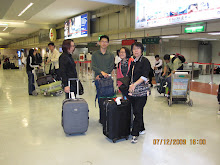Video of 2 men abusing a woman verbally and physically in Park Mall in Sgp - Not sure if this is REAL or just some lunatics who wanted a minute of INFAMY on cyberspace and in internet. If it is real, they should be punished by laws for abuses. Confused and lost?
"Low-income households spend more than their income: Lim Hng Kiang - CNA 08 October 2014
SINGAPORE: Households in the lowest income quintile are spending more per month on average than their income, and a quarter of these were retiree households, said Minister for Trade and Industry Lim Hng Kiang.
Mr Lim, citing findings from the Household Expenditure Survey 2012/2013, said the average monthly expenditure of households in the lowest income quintile exceeded their regular income by S$210.
Retiree households had a bigger spending gap than non-retiree households in the lowest income quintile, he added, in a written answer to a question raised in Parliament on Tuesday (Oct 7). These households derive around 61 per cent of their regular income from employment, 12 per cent from business and 27 per cent from non-work sources such as investments, regular Government transfers and contributions from relatives and friends, he said.
"Households that are spending beyond their regular income may be financing their excess expenditure through irregular receipts such as proceeds from the sale of properties, capital gains on investment, ad-hoc Government transfers and irregular contributions from relatives and friends, or a drawdown on their savings," Mr Lim stated.
The minister said the Department of Statistics (DOS) had released detailed statistics and analyses on the monthly expenditure and regular income of households by income quintiles as well as retiree households in the 2012/2013 survey. Those interested can download the publication from DOS' website, he added.""
This is interesting revelation.
Lessons for me are:
1. who are these people? why are they in this predicament - self-induced or simply bad luck despite working very very hard to make a living?;
2. how many are there? lowest 5 or 10%? If so, not so bad. If more than 15%, is this a systemic issue? It is quite discomforting to learn that many depend on government hand-out to make ends meet in one of the richest per capital nations on earth! What could have been done to prevent this?;
3. may be the full report in the printed press tomorrow will give MORE DETAILS and some analysis by sociologists, academicians and government officials can shed more lights on this issue. It is important to understand the root causes in order to help these households and individuals specifically. If there are common factors that contribute to this sad situation, a systemic solution can be found and carried out. If the dominant contributing factors CANNOT be identified or too diverse and not fitting into the 20/80 rule, at least the public know that it is not a policy issue.
While it is distressing to learn that some fellow Singaporeans are living a tough life, it is comforting to know that the government is helping them when they ask for help.
About Me
- LU Keehong Mr
- I am a Practitioner of 'The 7e Way of Leaders' where a Leader will Envision, Enable (ASK for TOP D), Empower, Execute, Energize, and Evolve grounded on ETHICS!
Subscribe to:
Post Comments (Atom)















No comments:
Post a Comment